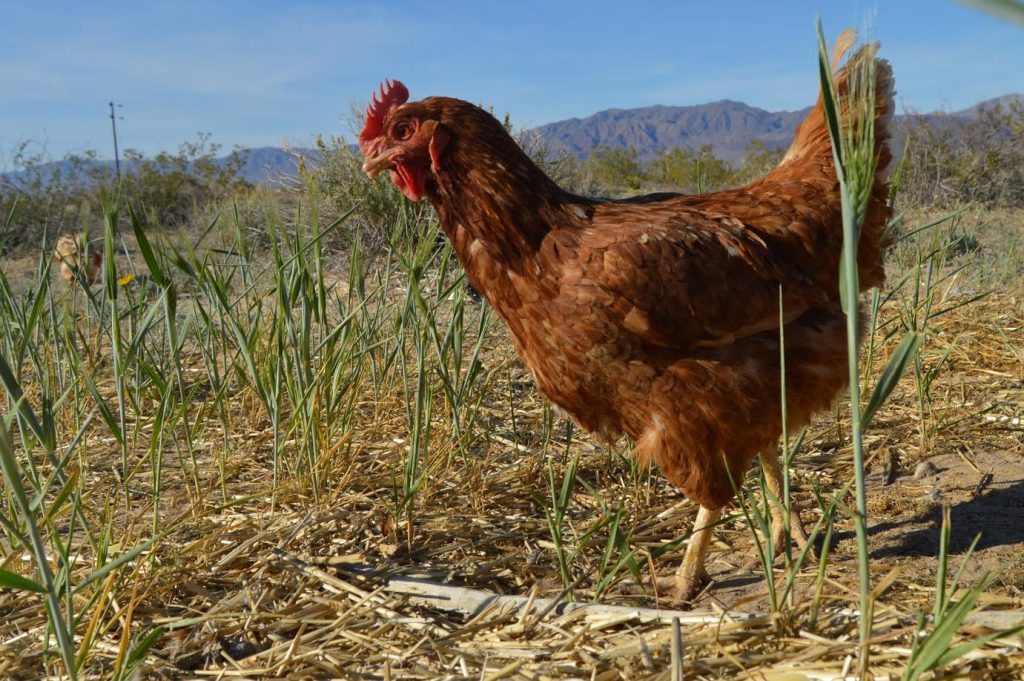Return Of The Egg Father
This weekend, a favorite farm product reappears in the CFMCV’s after an unavoidable (but much lamented) hiatus: Thomas Farm’s Eggs. Nationwide Americans buy close to 180 million eggs around Easter time for dyeing and hunting. The egg, however, is an agricultural product that defies seasonality. They’re available year-round, providing a steady source of a wide spectrum of vitamins and minerals, some relatively rare and important, like lutein and choline (which promote the health of our retinas and cell membranes respectively).

Are They Incredible?
Consumers are now returning to the yumminess they reluctantly abandoned in decades past, due to scientific misunderstandings behind eggs and cholesterol. Now those who love eggs are faced with new challenges. Back before the whole “Are eggs bad or incredible?” kerfuffle, the grocery store refrigerated case simply stocked “EGGS” and the variety had to do with size (small to extra large) and how many you wanted to buy (between 6 and a flat of 24). Now, as with many things in the supermarket, eggs are labelled with a dizzying array of terminology that make the average consumer consider resorting to “eenie-meenie-minie-moe.” After they parse out meaningless terms like “natural” and “farm fresh” to unregulated phrases like “omega 3 enriched” and “vegetarian fed” buyers often throw up their hands in defeat and choose the cheapest option before even considering words that actually describe the life of the hens who did the work and the nutrition their eggs impart as a result.
Terminology Egg-splained
We in California feel like we have more insight due to the 2008 passage of Prop 2, in an effort to provide better conditions for egg-laying chickens. By 2015 CA farmers needed to provide enough room in enclosures for chickens to “stand up, lie down, turn around and extend their limbs without touching another animal.” What does this mean when you’re standing quizzically in the aisle at Ralphs? In CA most of the cheapest eggs in the case still come from chickens that live in cages, though not as small as they used to be. The terms printed on boxes sold at supermarkets have no regulatory bite and are more like generally understood guidelines. “Cage free” eggs come from chickens that aren’t in cages, but still live in gigantic industrial housing with low light and no access to the outdoors. “Free range” hens can go outdoors but it can be for short times to a run beside the housing. “Pastured” is understood to mean that the chickens have full access to an environment that approaches the one they would choose for themselves in nature.
Only The Best for Roger’s Ladies
Roger Thomas of 29 Palms provides a pastured setting for his 3,000 avian “ladies” – at least what constitutes pasture in the high desert of 29 Palms. His Rhode Island Red Cross hens can come and go outside 24/7, eat sunflower sprouts and mealworms that Roger raises himself and “play” in an enriched environment with mazes, hoops and toys. He says the hens recognize him immediately (“That’s the guy who bring us good eats!”) and surround him like a fawning crowd of avian groupies when he enters the enclosure, perching on his shoulders and head if he allows them to. His regimen for care of these princesses-in-feather-capes is unusual in chicken ranch circles. His vehicles’ tires get a hose down when he arrives home at the farm. He has separate shoes and clothes he wears around the birds, and visitors have to don booties and coveralls. These procedures help insure that the birds do not succumb to – and quickly pass on – avian diseases through the sisterhood. Roger vows to never vaccinate the chickens, which without his special methods would leave them vulnerable. The reasoning is that his customers want eggs untainted with anything that might be passed on, especially people with compromised immune systems trying to find a clean source of protein. He sells all the farm’s eggs at farmers’ markets within 24 hours of being harvested, ensuring peak nutritional value.
When asked what sets his eggs apart he simply answers, “Love. I love my birds, and people can taste it in the eggs.” ( We actually hear this a lot from the participants of our Markets…) The upshot – if you want to know the true value of an egg, ask the farmer who raised it.